Struggling to choose the right bottles for your brand? Plastic seems cheaper, but it comes with hidden drawbacks that can affect your reputation and sales.
Stainless steel water bottles offer significant advantages over plastic ones. They are safer because they don't leach harmful chemicals like BPA, keep water tasting fresh for longer, are more durable, and represent a more environmentally friendly choice. This makes them a strategically sound investment for your business.
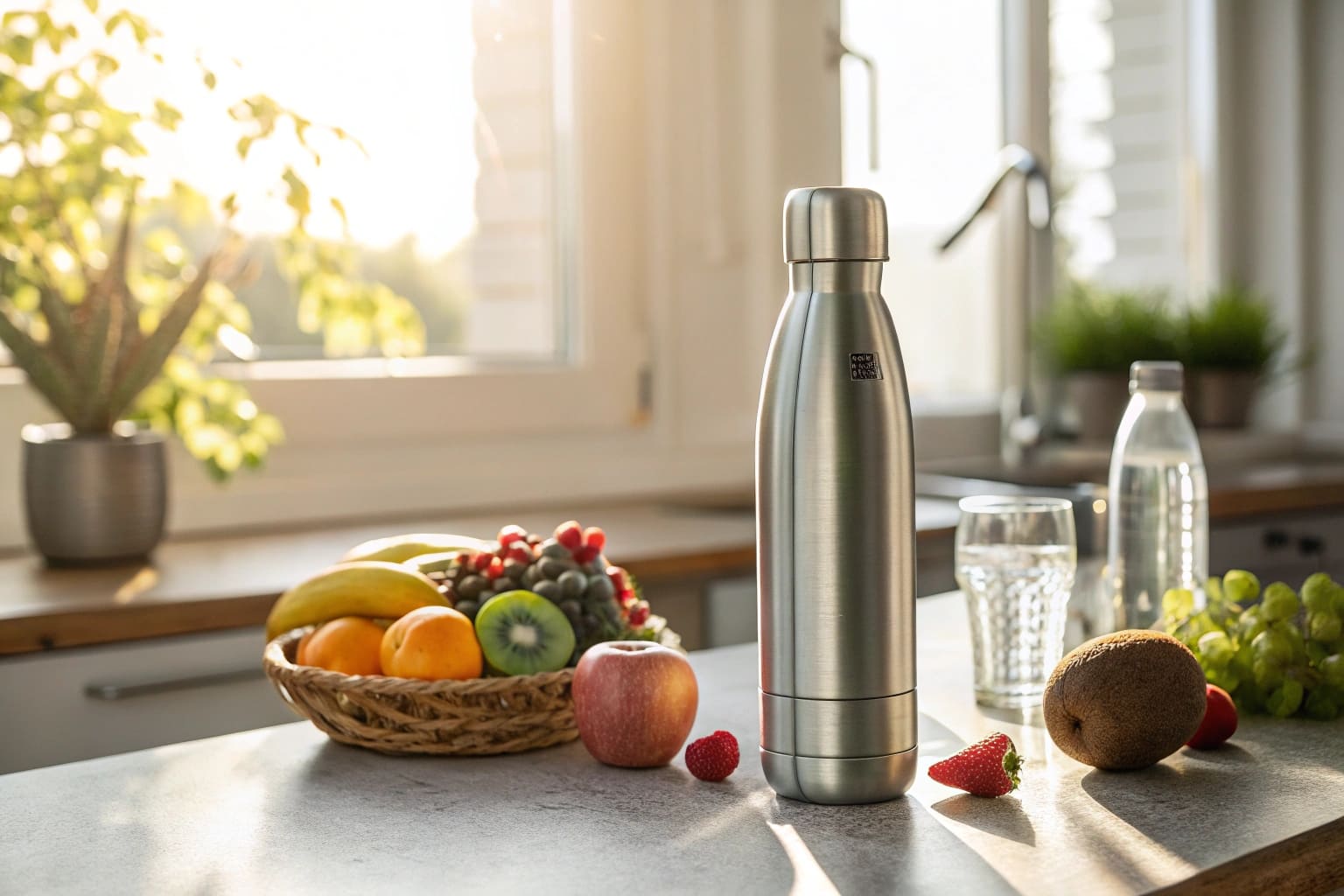
Now that we've touched on the main benefits, you might be wondering about specific details. As someone who has been in the stainless steel bottle business for years, I've talked to many buyers, like Mark Shenng from Canada, who are very particular about quality and safety. They know their customers are too. Let's explore some common questions. I want to help you understand exactly why stainless steel is the superior option for your inventory and how it meets the demands of today's discerning consumers.
How Long Can You Keep Water in a Stainless Steel Bottle?
Worried about water maintaining its freshness in your inventory or for your customers? Stale water can be a real concern. Stainless steel effectively keeps water tasting clean, reassuring your clients.
You can confidently keep water in a high-quality, food-grade stainless steel bottle for several days. The water will remain fresh and safe to drink because stainless steel is inert, non-porous, and doesn't encourage bacterial growth like some plastics can.
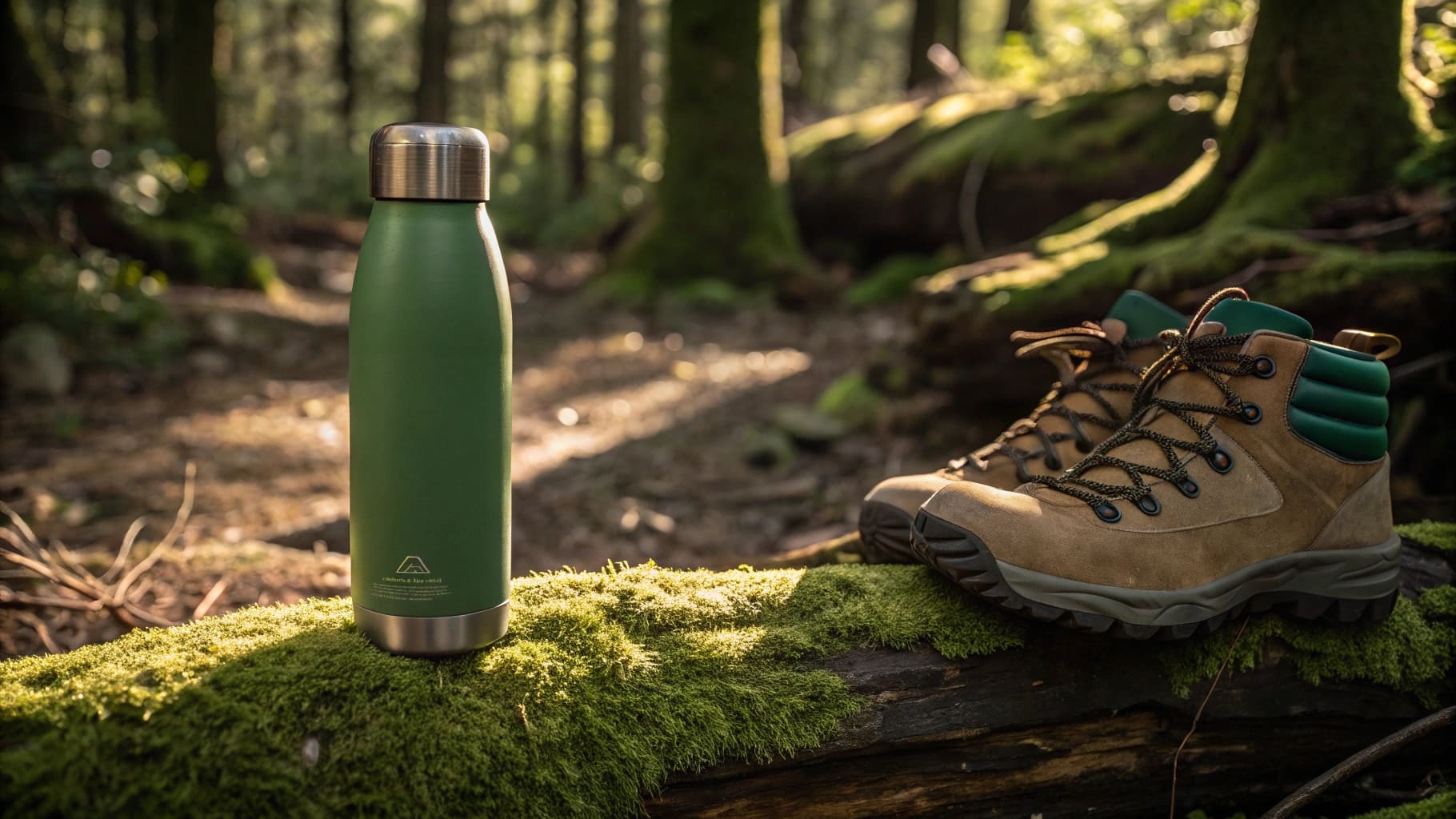
When I discuss water storage with clients, they often want to know the specifics. The longevity of water in a stainless steel bottle isn't just about the bottle itself; several factors play a role. For instance, the initial cleanliness of the bottle is paramount. It must be thoroughly cleaned before each refill to prevent any carry-over contaminants. The quality of the stainless steel is also crucial. At Icobottle, we primarily use food-grade 304 stainless steel, and sometimes 316 for specific needs, because these materials are highly resistant to rust and corrosion and don't impart any metallic taste. The seal of the lid makes a difference too; an airtight seal prevents airborne particles and bacteria from entering. Lastly, the purity of the water source itself contributes to how long it stays fresh. Filtered water will generally last longer than untreated tap water.
Here's a simple comparison:
| Factor | Stainless Steel (Food-Grade 304/316) | Typical Plastic Bottle |
|---|---|---|
| Material Inertness | High (does not react with water) | Variable (can leach chemicals) |
| Taste Preservation | Excellent (water tastes fresh for days) | Poor (can develop plastic taste) |
| Bacterial Growth | Low (non-porous surface) | Higher (can harbor bacteria) |
| Cleaning Ease | Easy to clean thoroughly | Can be harder to clean fully |
For B2B buyers, understanding these nuances helps in conveying the value proposition of stainless steel bottles to your own customers. It's about delivering a product that guarantees a fresh and safe drinking experience consistently.
Is It Better to Drink Water Out of Plastic or Stainless Steel?
Health-conscious consumers are increasingly scrutinizing product materials. Offering plastic water bottles might risk your brand's alignment with health and wellness trends. Stainless steel is widely recognized as the healthier, more premium choice.
It is definitively better to drink water from a stainless steel bottle compared to a plastic one. Stainless steel is non-toxic, doesn't leach harmful chemicals like BPA or phthalates, and maintains the purity of the water. Many plastics, conversely, can release chemicals, potentially impacting health over time.
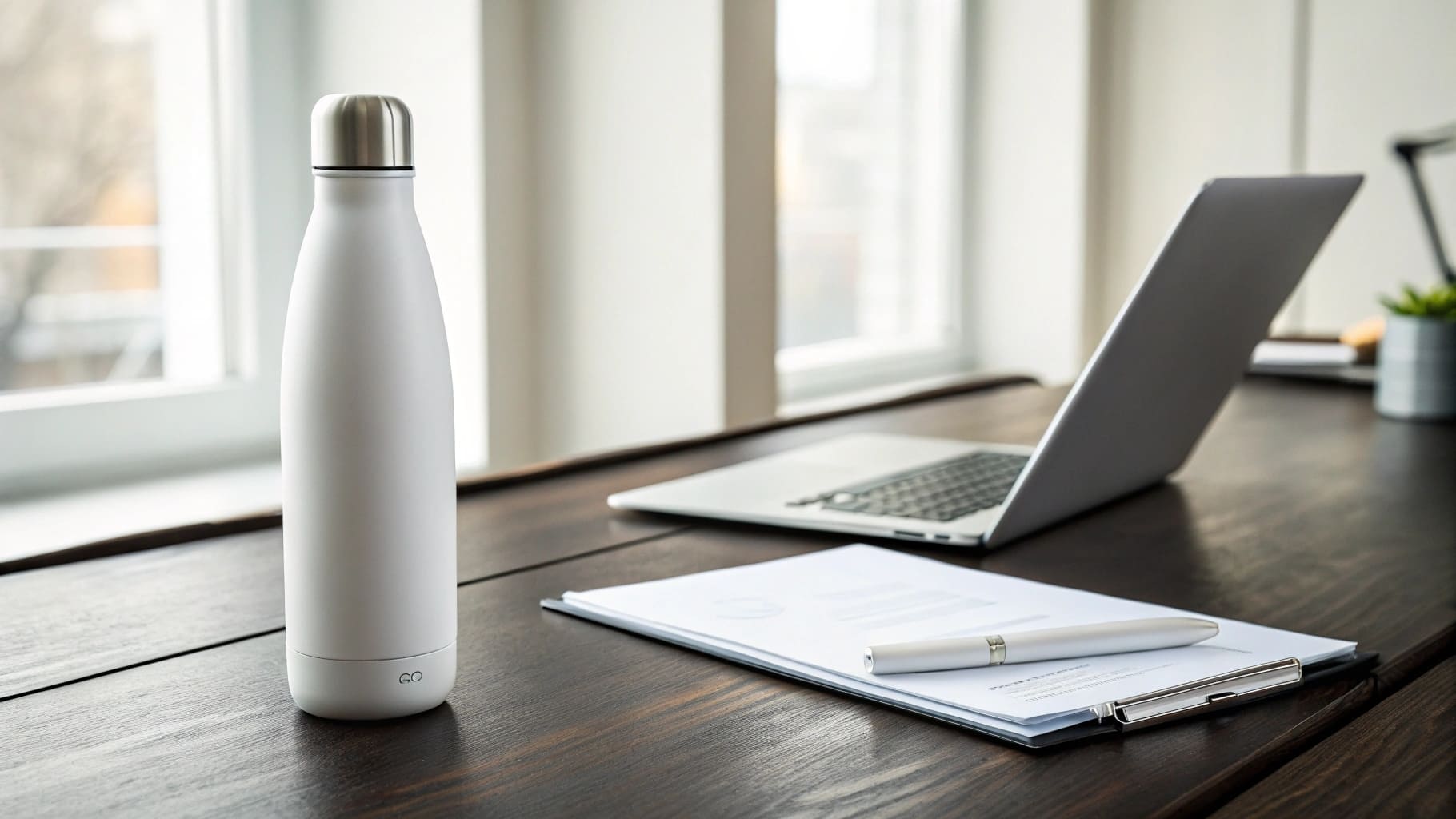
This is a critical point for any procurement officer or business owner. Your customers trust you to provide safe products. When we compare plastic and stainless steel, the health aspect is a major differentiator. Many plastics, even those marketed as "BPA-free," can contain other chemical plasticizers that may have estrogenic activity or other health concerns. There's also the growing issue of microplastics shedding from plastic containers into the water.
Let's break down the health considerations:
- Chemical Leaching:
- Stainless Steel: High-quality food-grade stainless steel (like 304 or 316) is exceptionally stable and does not leach chemicals into water, even with temperature changes or over extended periods.
- Plastic: Many plastics can leach chemicals such as BPA (Bisphenol A), phthalates, and antimony, especially when exposed to heat (like a hot car or dishwasher) or if the plastic is old or scratched. These chemicals are linked to various health issues, including endocrine disruption.
- Microplastics:
- Stainless Steel: Does not shed microplastics.
- Plastic: Studies have shown that plastic bottles can release microplastic particles into the water they contain. The long-term health effects of ingesting microplastics are still being researched but are a significant concern.
- Hygiene:
- Stainless Steel: It's non-porous and easy to clean thoroughly, making it resistant to bacteria and mold growth.
- Plastic: Can develop scratches over time where bacteria can hide. Some plastics are also more prone to retaining odors or flavors.
For my clients, especially those who export to markets like America and Europe where health standards and consumer awareness are high, emphasizing these health benefits of stainless steel is key. It's not just a bottle; it's a commitment to well-being.
What Is the Healthiest Water Bottle to Use?
Your customers increasingly demand the safest products for their daily use. Offering materials with known health concerns can damage trust and brand loyalty. High-quality stainless steel is widely recognized as the healthiest material for water bottles.
The healthiest water bottle to use is generally considered to be one made from food-grade stainless steel, such as 304 (18/8) or 316. This material is non-toxic, doesn't leach harmful chemicals, is durable, and can be easily cleaned to maintain hygiene.
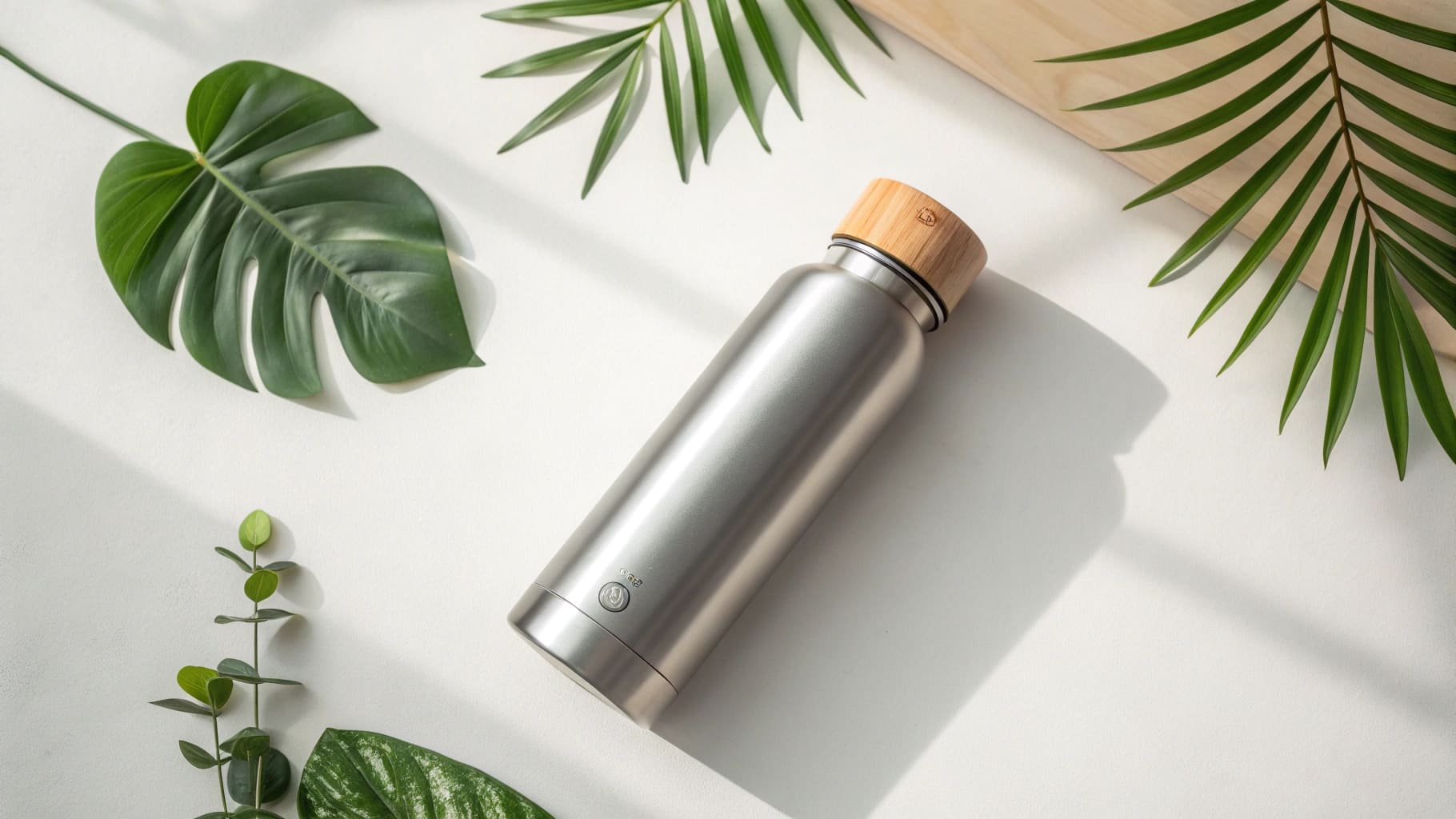
When we talk about the "healthiest" water bottle, several characteristics come into play. It’s not just about one single factor, but a combination of properties that ensure safety and purity.
-
Material Composition: The primary factor is the material itself. Is it inert and non-toxic?
- Food-Grade Stainless Steel (e.g., 304, 316): This is my top recommendation. It doesn't contain BPA, phthalates, lead, or other harmful substances. It’s also highly resistant to rust and corrosion.
- Glass: Another excellent option for health, as it's inert and doesn't leach. However, its fragility makes it less practical for many users, especially for on-the-go situations.
- BPA-Free Plastics (e.g., Tritan): While better than plastics containing BPA, some concerns remain about other potential chemical leachates. They are also less durable than steel and can scratch.
- Aluminum: Often lined with a plastic resin to prevent aluminum from leaching into the water. If this lining is compromised (scratched or degraded), it can expose the contents to aluminum, and the lining itself might contain chemicals of concern.
-
Non-Leaching Properties: The bottle should not transfer any substances to the water. Stainless steel excels here.
-
Ease of Cleaning: A bottle that is difficult to clean can become a breeding ground for bacteria. Stainless steel's smooth, non-porous surface makes it easy to wash thoroughly. Many are even dishwasher safe.
-
Durability: A bottle that resists dents and scratches will maintain its integrity and hygiene longer. Scratches in plastic can harbor bacteria.
Consider this simple health scorecard:
| Feature | Stainless Steel | Glass | BPA-Free Plastic | Lined Aluminum |
|---|---|---|---|---|
| Non-Toxic Material | Yes | Yes | Generally | Depends on Lining |
| Non-Leaching | Yes | Yes | Potential for some | If lining fails |
| Resists Bacteria | High | High | Medium | Medium |
| Durability | High | Low | Medium | Medium |
| Overall Health Rank | 1st | 2nd | 3rd | 4th |
For B2B clients like startup bosses or procurement officers aiming to offer top-quality, health-conscious products, stainless steel is the clear winner. It aligns perfectly with the demands of consumers who prioritize health without compromising on durability or style.
What Can You Not Put in a Stainless Steel Water Bottle?
Want to offer versatile products that meet diverse customer needs? Unclear limitations can deter potential sales. While stainless steel is robust, understanding its few boundaries helps manage expectations effectively.
Generally, you should avoid putting highly corrosive substances or extremely acidic or alkaline beverages in a stainless steel bottle for very extended periods (many days). For daily use with water, tea, coffee, and most common drinks, it's perfectly safe and ideal.
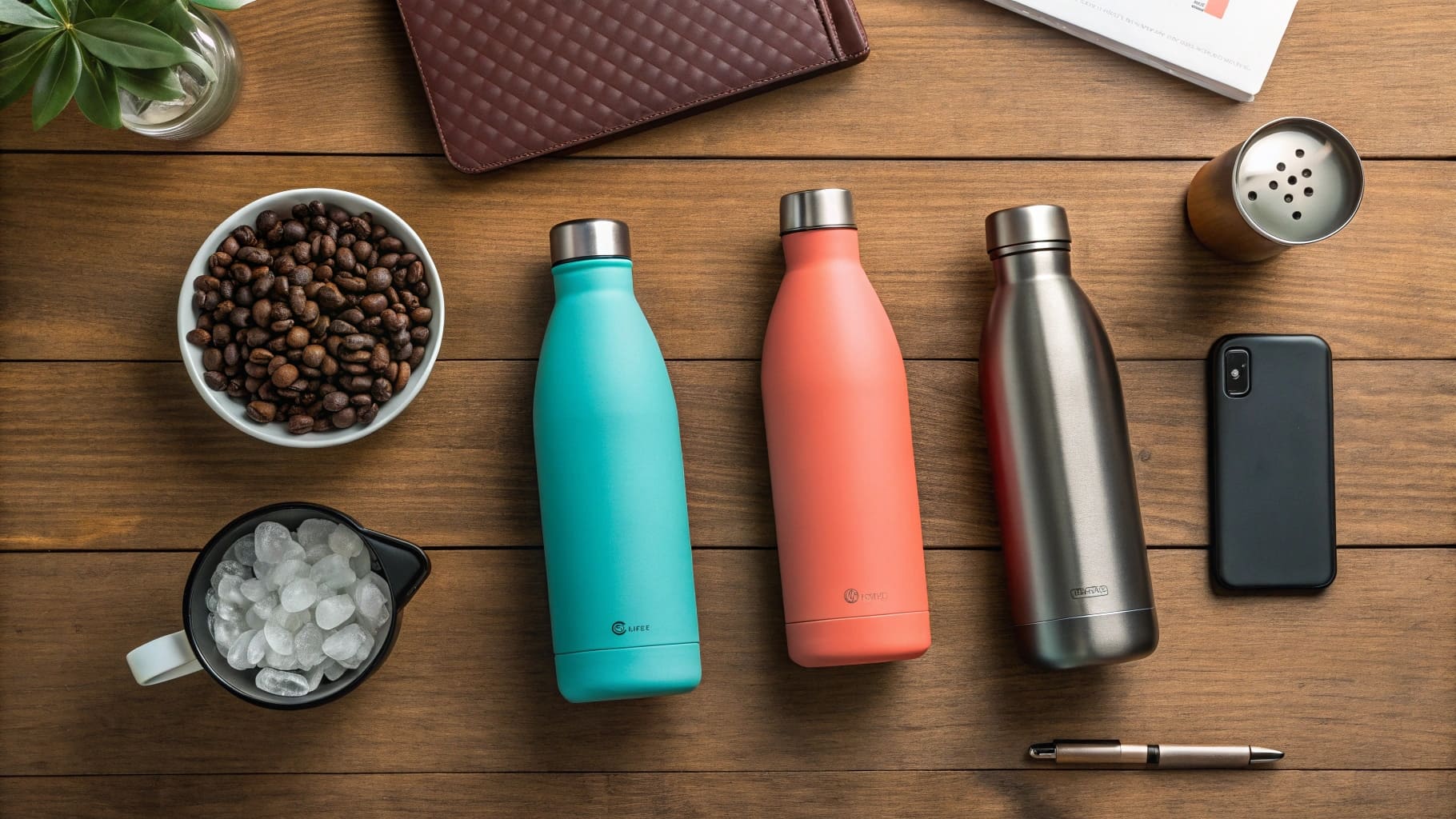
Stainless steel, especially grades like 304 (18/8) or 316, is incredibly versatile and resilient. This is why we at Icobottle primarily use these types for our products. However, like any material, it has its limits, though they are rarely encountered in typical daily use for a water bottle.
Here’s what to generally be mindful of for very long-term storage:
- Highly Corrosive Acids: While stainless steel is resistant to corrosion, extremely strong acidic solutions (e.g., undiluted industrial acids, or perhaps leaving pure, undiluted lemon juice or vinegar for many, many days) could eventually etch or pit the surface. For normal consumption of diluted fruit juices or a squeeze of lemon in water, this is not an issue.
- Strong Alkaline Solutions: Similar to strong acids, highly concentrated alkaline substances left for prolonged periods are best avoided.
- Bleach or Chlorine-Based Cleaners: Soaking with bleach for extended periods is not recommended as it can compromise the passive layer that protects stainless steel from corrosion. Quick sanitization is usually fine, followed by thorough rinsing.
- Carbonated Drinks: Stainless steel itself handles carbonation fine. The concern is more with the lids. If a carbonated beverage is sealed tightly and then shaken vigorously or exposed to significant temperature increases, pressure can build up. This might, in rare cases, make the lid difficult to open or even cause it to fail, depending on the lid design. For short-term transport, it's usually okay.
- Milk (at room temperature for long periods): This isn't about the steel reacting with milk, but rather that milk can spoil quickly if not refrigerated. If milk dries inside, it can also be harder to clean thoroughly, potentially leading to bacteria. Again, this is true for any container.
Let's look at common beverages:
| Beverage Type | Suitability for Stainless Steel (304/316) | Notes |
|---|---|---|
| Water | Excellent | Ideal use case. |
| Tea / Coffee | Excellent | May cause staining over time, but easily cleaned. |
| Fruit Juices (diluted) | Excellent | Rinse after use to prevent sugar buildup. |
| Sports Drinks | Excellent | Rinse after use. |
| Carbonated Drinks | Good (short term) | Be mindful of pressure buildup with some lid types if stored long. |
| Milk | Good (if refrigerated & cleaned promptly) | Spoils at room temperature; ensure thorough cleaning. |
| Alcoholic Beverages | Generally Good (wine, beer, spirits) | Not ideal for very long-term storage of high-acidity wines. |
For businesses importing these bottles, it's good to know that for over 99% of typical consumer uses, stainless steel is perfectly safe and highly suitable. The "do nots" are mostly for extreme situations not encountered in daily hydration. This versatility is another strong selling point.
Conclusion
Stainless steel water bottles clearly outperform plastic. They offer superior health benefits, durability, taste preservation, and eco-friendliness, making them a smart, premium choice for your business.

